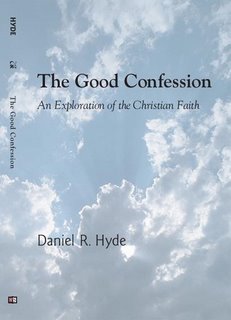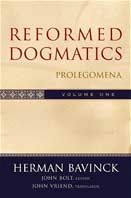Miracles
Topic: Theology
Reading: Susan Hunt Heirs of the Covenant
Enjoying: Scoresby's
Listening: Ordinary Means podcast
Whenever miracles are recorded in the New Testament, one of their primary duties is to point to either the arrival or the inbreaking of the Kingdom of God in this present evil age. The miracles Jesus performed show Him to be the true King, who binds Satan, sickness, and evil, and each miracle is a shaft of light piercing through the clouds and showing the imminent arrival of the kingdom.
Now, post-resurrection, the apostolic miracles confirmed this truth, and furthered the joys to be owned in the eschatological age. All miracles were in this sense redemptive-historical, ultimately pointing to God's glory and causing men to glorify Him. Ridderbos notes, "...in the whole of Jesus' power to work miracles the coming of the kingdom is realized and is evidence of its presence... Jesus' preaching of the kingdom and his miracles are repeatedly mentioned in the same breath (cf., e.g., Matt 4:23, 9:35)... Moreover, the real issue with miracles is the glorification of God..."[1]
One other interesting aspect of miracles is their function in an apologetic nature in furthering the kingdom individually upon men's consciousnesses. Francis Schaeffer noted a kind of "pre-evangelism" that clears away people's preconceived ideas that hinder them from believing the Gospel when it is presented. An example would be explaining theodicy - the problem of evil - to someone who cannot stomach the message of Christ crucified because he is too overwhelmed by this seeming impossibility. Thus explaining the problem of evil is not necessarily preaching the gospel, yet it is an important part of the entire evangelical process with the individual.
Calvin recognizes a similar function for miracles. In his commentary on John 3 when Nicodemus inquires from Jesus, he notes, "In a word, as miracles have a twofold advantage: to prepare the mind for faith, and, when it has been formed by the word, to confirm it still more..."[2] Here, Calvin describes miracles as going before "the word," and then following to confirm the faith "still more." The clear miraculous quality of what Jesus had done, and what his followers continued to do, overwhelmed any carnal defenses the mind had projected to defend itself, and the Holy Spirit "irresistibly" draws the heart to belief in the good word of the Gospel. Finally, the miracle functions to strengthen and confirm the individual's faith. "God always intended that miracles should be seals of his doctrine."[3]
This is not, as Calvin goes on to say, grounds for thinking that "faith depends on miracles."[4] The word of the Gospel is the fulcrum on which these two uses of miracles turn, "for this reason the miracle in itself is not the most important thing nor even the sharing in Jesus' miraculous power, but much rather, the participation in the redemption of the kingdom which is thereby revealed... where Jesus interrupts the miracles in order to go elsewhere to preach the kingdom of God with words..."[5]
Is there a sacramental parallel with miracles? In some senses, such language could be justified. While miracles are not the Gospel, "they make visible and audible the fulfillment of the promises, the coming of the great era of salvation... Jesus' miracles reveal the coming of the kingdom of God." Again, while they are not properly the Gospel, they do produce the same crisis: "A miracle, as much as preaching in its sense of being a revelation of the kingdom of God, is a confrontation which necessitates a decision: for or against Jesus as the victor of the Evil one and the Bearer of the Spirit of God."[6] So like the sacraments, miracles do herald signs of the Gospel, but ultimately are in the end signs of the Gospel themselves.
Except in certain circles, no matter one's cessated view we live in an age where there seems to be less miracles than in the apostolic era. While healings and other miraculous occurrences still pop up, they seem more sporadic and less sensational (no doubt due to several factors, materialism and technology not the least of these). Nevertheless, one of God's greatest miracles is power of godliness the releases and enables men and women to walk by the Spirit. The God who stopped the sun, split the sea, and raises the dead has made us His handiwork for good works (Ephesians 2:8-10). The faith He has planted in our hearts, which was a divine gift, has the seeds of love within it. Our regenerated lives with hearts that love for the first time are His miracles. We have been resurrected (Colossians 3:1), and we who were dead in trespasses have been made alive and live with our Life, Christ Jesus, in heaven (Colossians 3:3-4).
We ought to think further how the miracle of resurrection living can function in Calvin's two bookends of miracles. Our resurrected lifestyles should "prepare the mind [of others for] faith," and it ought to confirm the good word of the Gospel preached. If we for even a second focus on the bookends to the exclusion of the Gospel-middle, we will be lost. At the same time, Christian character has for too long been a stumbling block to the free offer of Christ crucified, and instead of holding forth the miracle of the new birth it looks more like hypocritical curses. Only by recovering an emphasis on Gospel will our miraculous lives have any lustre to prepare minds, and only by the death and resurrection of the Lord Jesus will we find the grace to live Spirit-led lives that confirm His good testimony.
__________________________________
What do you think? Is this an accurate portrayal of miracles? Of faith? Of evangelism and the Gospel? Follow up with a comment or shoot me an email.
__________________________________
Footnotes
[1]Ridderbos, H. The Coming of the Kingdom. P&R Publishing, 1962. p. 65, 70. Back
[2]Calvin, John. Commentary on John, Vol. I. Christian Classics Ethereal Library (John 3:1-6). Back
[5]Ridderbos Coming of the Kingdom p. 70. Back
Labels: theology































































